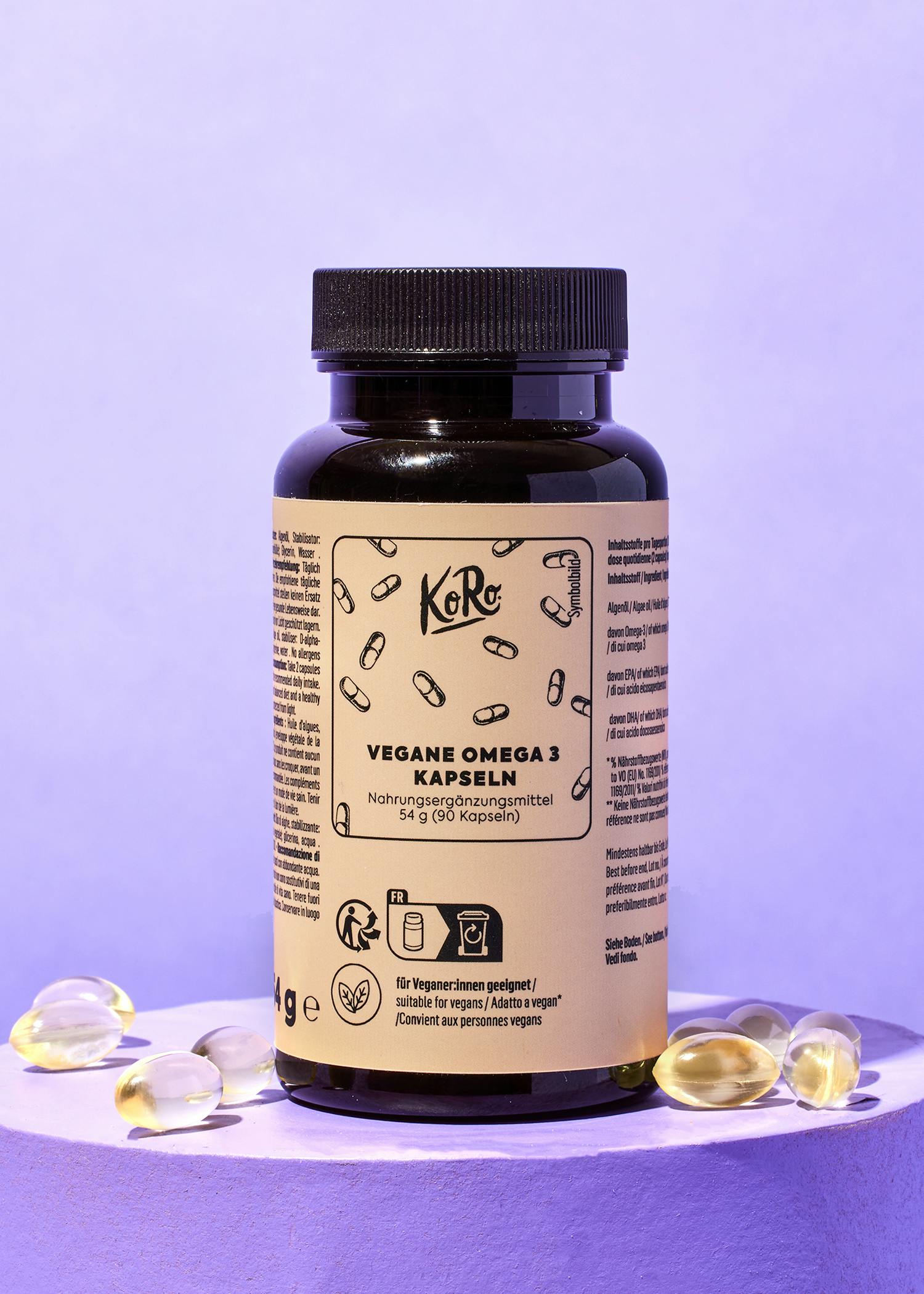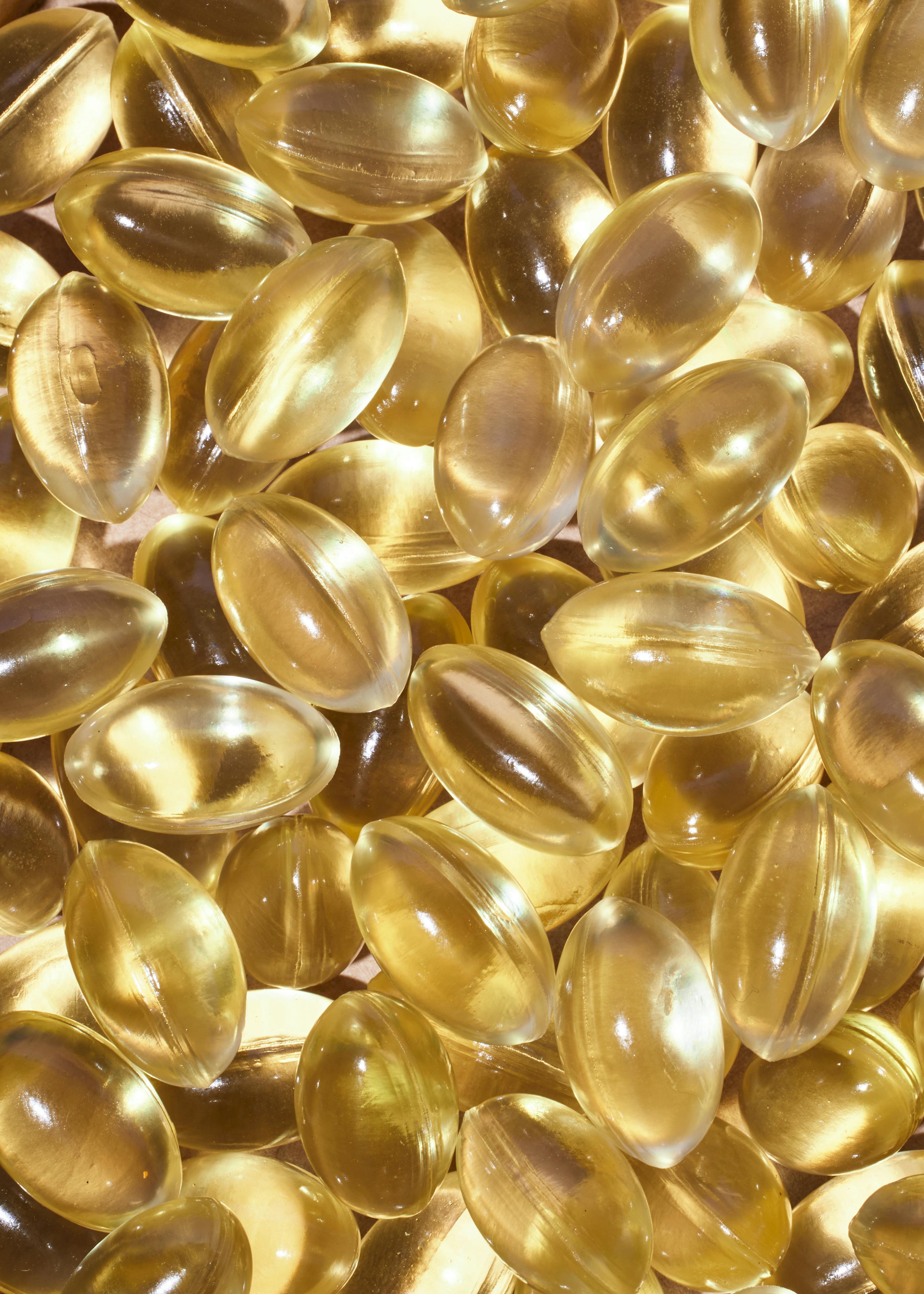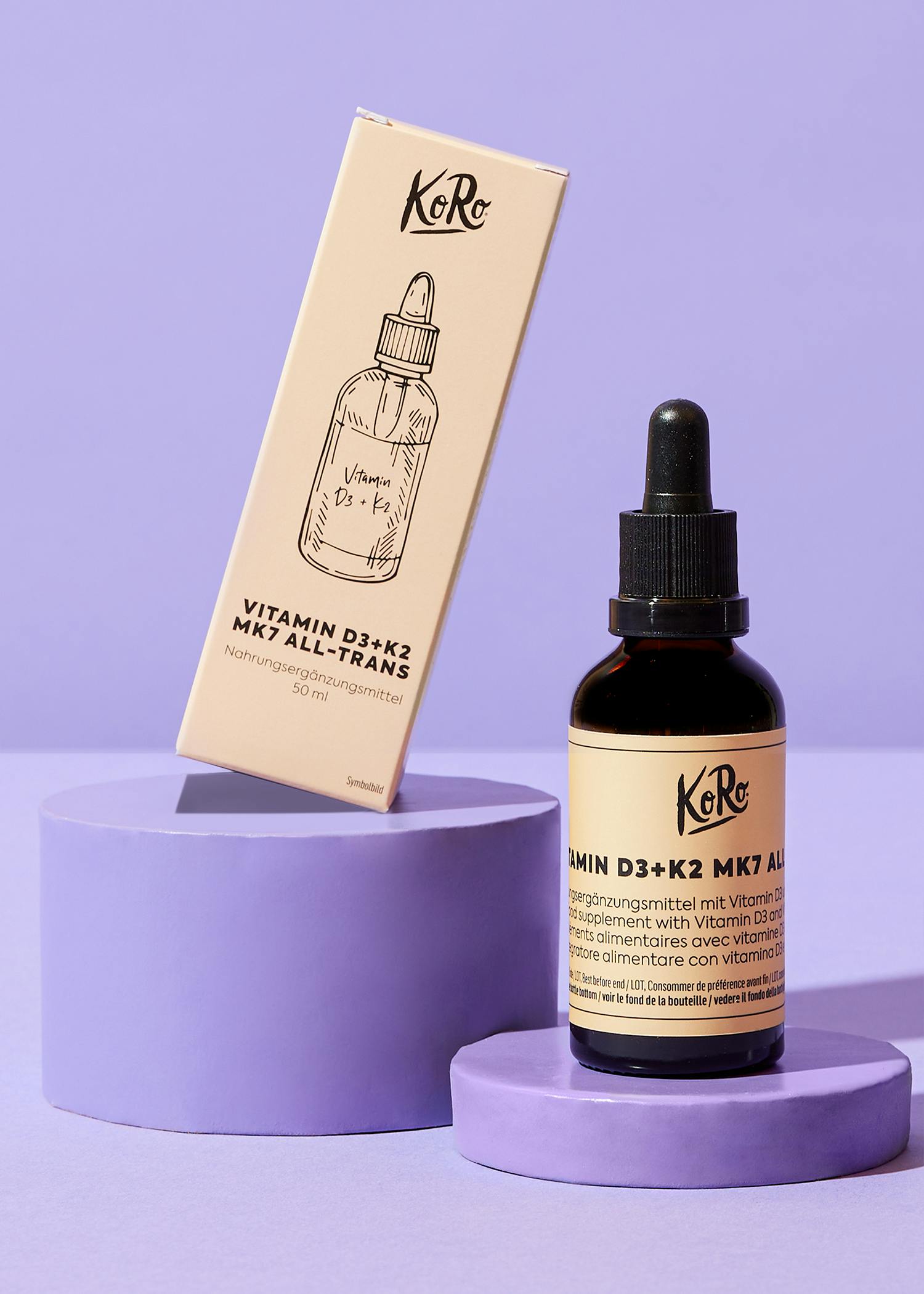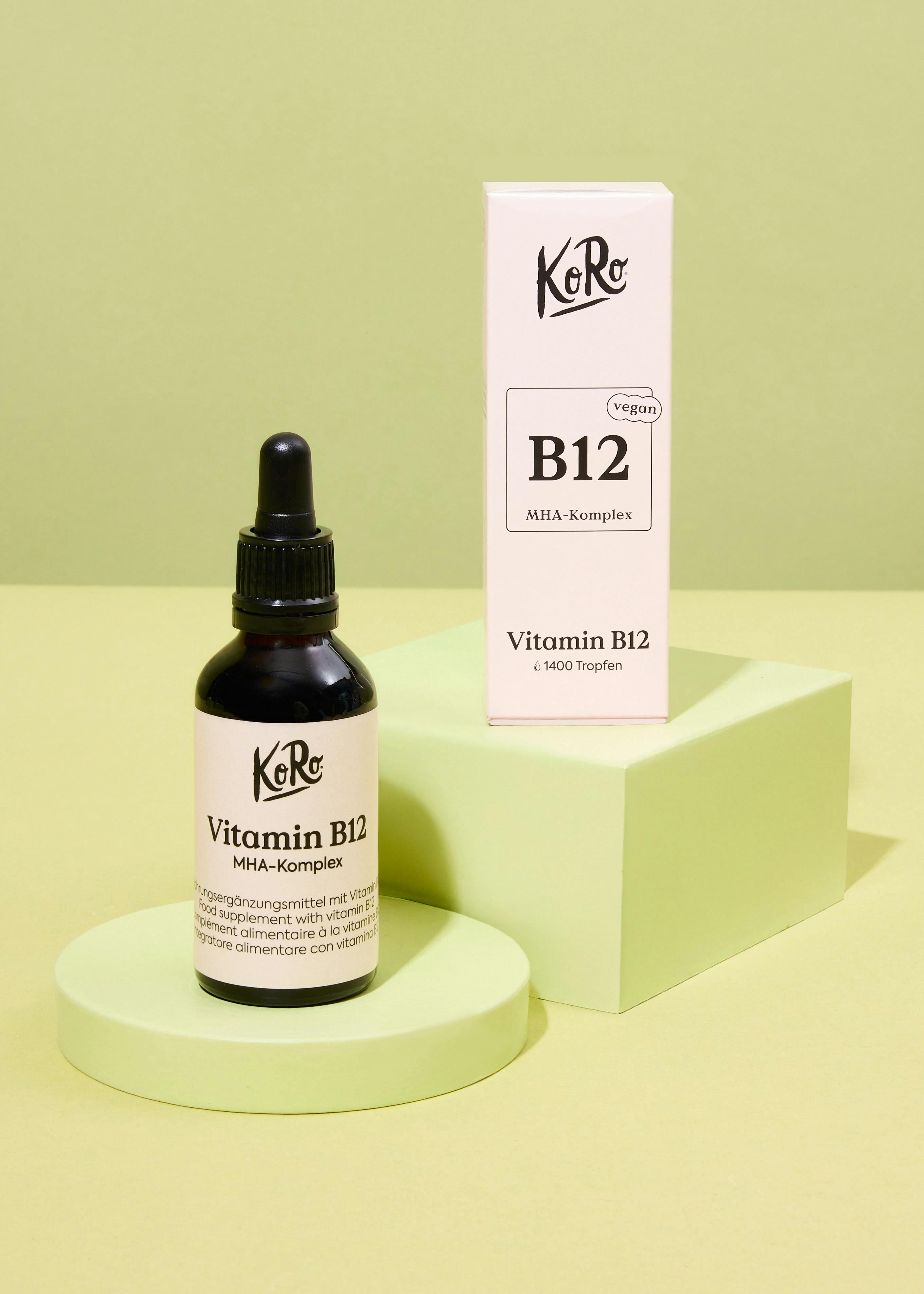Let's start with the similarities: The B vitamins belong to the so-called coenzymes. In plain language, this means that they help the actual enzymes in the body to work and are involved in numerous metabolic processes. You will often find food supplements that contain a vitamin B complex. We will clarify whether these supplements are of any use at the end of the article. First of all, we want to give you an overview of what exactly the human body needs the individual vitamins for, whether a deficiency is likely and which foods contain them.
But first the basics: These B vitamins exist:
- B1 (thiamine)
- B2 (riboflavin)
- B3 (niacin)
- B5 (pantothenic acid)
- B6 (pyridoxine)
- B7 (biotin)
- B9 (folate)
- B12 (cobalamin)
If you are now wondering what has happened to vitamins B4, B8, B10 and B11: many substances that were originally classified as vitamins have been stripped of this status. It has been established that the body can produce them itself - and therefore they are not vitamins, because we have to take vitamins with our food. Quite simply!
In this article, we will focus on vitamins B2, B7, B9 and B12, as there is normally no deficiency in the other B vitamins. The good news first: B vitamins are contained in many common foods. But now let's move on to the potentially critical candidates!
Vitamin B2 (riboflavin)
Riboflavin is found in animal sources such as liver, kidney, fish and dairy products and in plant foods such as seeds, nuts, pulses, vegetables such as broccoli and kale and whole grains. A pure vitamin B2 deficiency is rather unusual; it tends to occur in conjunction with other nutrient deficiencies. However, riboflavin is considered a critical nutrient in the vegan diet, which is why we wanted to take a closer look at the vitamin. KoRo kitchen secret tip: Snack on plenty of almonds, cook mushrooms regularly and refine your favorite dishes with yeast flakes. Vitamin B2 contributes to the normal functioning of the nervous system and the maintenance of normal red blood cells.
Vitamin B7 (biotin)
Biotin is found in animal foods such as offal, boiled eggs and dairy products and in plant foods such as soybeans, oatmeal and mushrooms. Although B7 is not a vitamin that is often deficient, we did not want to leave it unmentioned. Biotin is often associated with hair and nail growth. Unfortunately, we have to disappoint you: Improving your mane, skin and nails with biotin supplements has not been scientifically proven. Vitamin B7 only helps to maintain normal hair, skin and nails, not to improve them. Nevertheless, B7 is of course an important vitamin, as biotin contributes to the normal function of the nervous system and to normal energy metabolism.
Vitamin B9 (folic acid or folate)
Folic acid is usually mentioned in the same breath as pregnancy, and not without reason. This is because a sufficient supply of vitamin B9 is particularly important during pregnancy, as it is relevant for the development of the fetus. And where can B9 be found? Good sources of folate are green vegetables, tomatoes, pulses, nuts, oranges, sprouts, wholegrain products, potatoes, liver and eggs. Incidentally, people in Germany tend to consume too little folate, although a serious deficiency is rare. As folate helps to reduce tiredness and fatigue and has a function in cell division, it is a relevant vitamin for all of us, not just during pregnancy. So eat lots of fruit, vegetables and wholegrain products - your bowl will look much nicer anyway!
Vitamin B12
Cobalamin comes in many forms, but we can only utilize three of them: methylcobalamin, adenosylcobalamin and cyanocobalamin. The sources of cobalamin are mainly of animal origin, i.e. meat, fish and seafood as well as eggs and dairy products. Vitamin B12 can also be found in plant-based and fermented foods such as sauerkraut or nori, but the quantities are too small for you to cover your vitamin B12 supply with plant-based foods alone. Good to know: Vitamin B12 can be stored in the body so that your body will continue to supply you with it even if your intake is insufficient. And this is very important, as vitamin B12 contributes to the normal functioning of the nervous system and immune system. However, you should still check your vitamin B12 status regularly with a blood test so that your stores are not depleted and you are always well supplied. For vegans: a vitamin B12 supplement is also a must! It is also recommended for vegetarians and people aged 65 and over.
Can intestinal bacteria produce vitamin B12?
It is important to know that vitamin B12 is produced by microorganisms in the digestive tract of animals and humans. In humans, this happens in the large intestine. However, as nutrients are no longer absorbed in the large intestine, the vitamin B12 requirement cannot be met in this way. Science currently assumes that only ruminants such as cows or sheep can supply themselves with B12 produced by their own intestinal bacteria. Humans and other animals must obtain the vitamin from their diet. Foods containing vitamin B12 are mainly animal products such as meat, dairy products and eggs.
Are there vegan foods containing vitamin B12?
The bacteria that produce vitamin B12 are not only found in the gut, but also naturally in the soil and on roots.
You might be thinking now: Then why not just eat root vegetables? Unfortunately, it's not quite that simple. Nowadays, industrial agriculture has largely destroyed the natural soil flora in arable land, meaning that there is little or no vitamin B12 left in (unwashed) vegetables.
Most of the farm animals whose products we consume are not kept and fed in a species-appropriate manner, so that they have no access to the vitamin B12 sources in nature. Vitamin B12 is therefore often added to animal feed. The animals are therefore given supplements themselves so that we can absorb vitamin B12 from animal products. Even cows, which can actually produce the vitamin themselves, need enough cobalt in their diet, but this is also artificially added to their feed.
Okay, now what?
As with all nutrients, there are numerous food supplements on the market for B vitamins. They are often advertised as "brain food", "sports vitamin" or "good for the heart and psyche". It is true that we need vitamins to maintain many important bodily functions. However, if you eat a varied and balanced diet, the addition of food supplements is not necessary. Unless you eat a purely plant-based diet, in which case a vitamin B12 supplement is recommended. B vitamins are water-soluble and the body can hardly store them, which means that excess amounts are simply excreted in the urine (vitamin B12 is another exception). So if you take a large amount of B vitamins, your body may not need them at all and simply excrete them directly. As always, if you suspect a deficiency, a blood test can provide information. So it's better to play it safe and talk to your doctor or a nutritionist.
So let's summarize: Most of us are adequately supplied with B vitamins. Before and during pregnancy, you should pay particular attention to your folic acid intake. If you are vegan, it makes sense to take a vitamin B12 supplement. If you are not deficient in B vitamins, taking a vitamin B complex will not bring you any additional benefits, as taking more than your daily requirement will unfortunately not lead to more beauty, strength or health. However, if you would like to increase your B vitamin intake as a preventative measure, we have put together a few tips for you here!
- All B vitamins are water-soluble. You can easily increase your vitamin B intake, for example, by using the cooking water when you cook vegetables, e.g. for soups.
- Alternatively, you can steam your vegetables instead of boiling them. This is gentler on the vegetables and retains more B vitamins because they are not transferred to the cooking water. Easy and effective!





